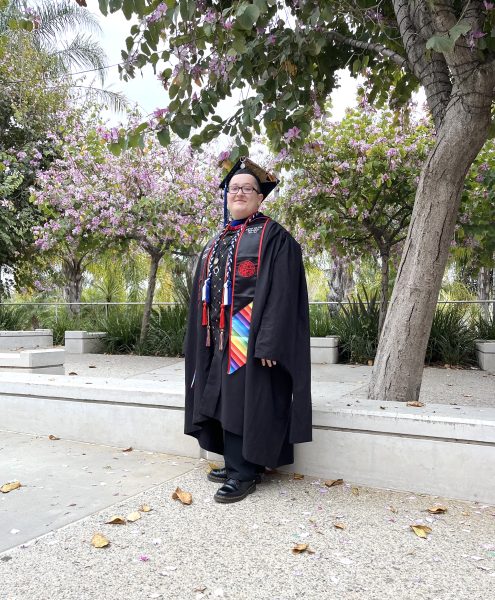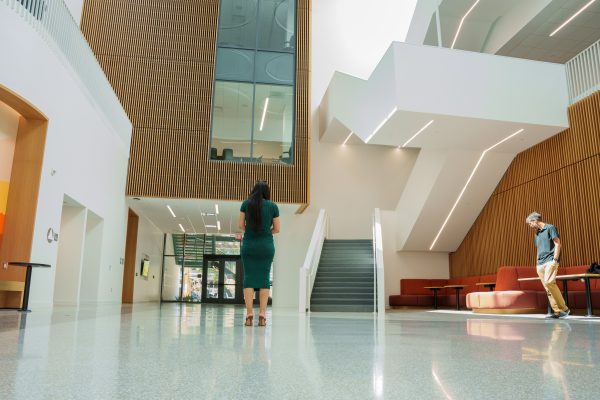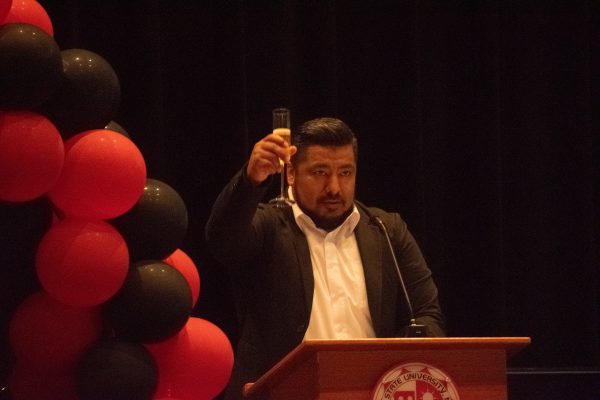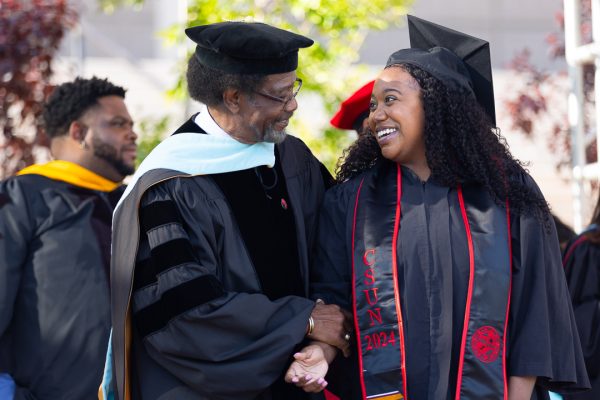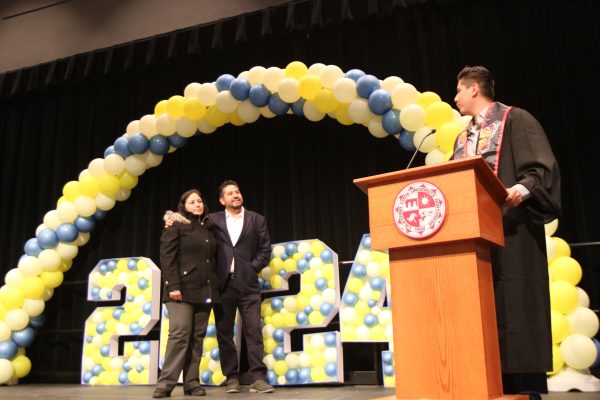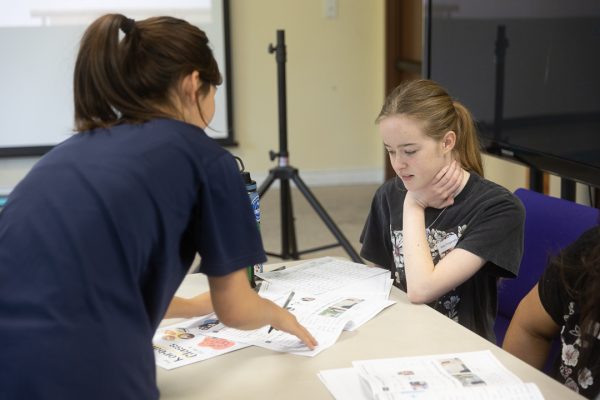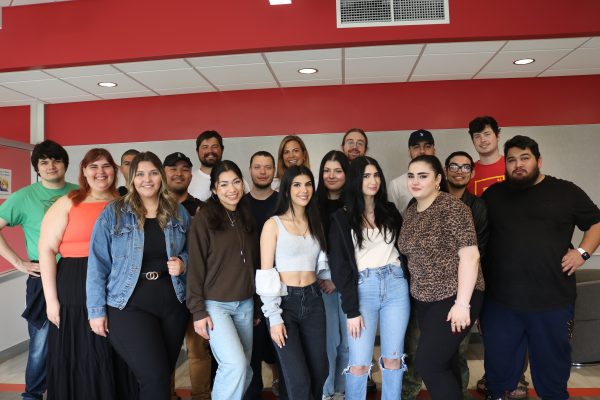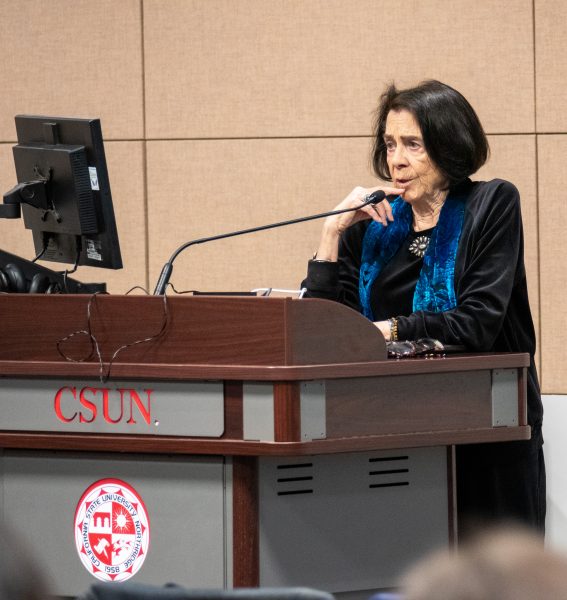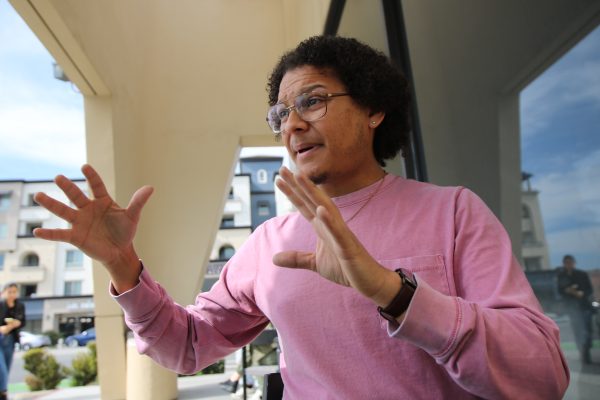CSUN will host in-car parades, virtual commencements for students who graduated during the pandemic
Interim Vice President for Information Technology Ranjit Philip presenting the Multi-Factor Authentication Deployment Plan during the Associated Students meeting on Monday, April 5, 2021.
April 7, 2021
Vice President of Student Affairs and Dean of Students William Watkins joined the open forum during the Associated Students meeting to announce the upcoming virtual commencement ceremonies and the recent round of student emergency financial assistance payments.
Virtual commencement and in-car commencement parade
On May 15, CSUN will host an “All-University Virtual Commencement Ceremony.” Each college will host their own ceremonies from May 21-24. The events will consist of live and pre-recorded content.
In addition to the virtual commencement ceremonies, the university will be hosting a commencement parade from May 25-28. Students must register in advance to have the opportunity to drive through campus and stop for an in-vehicle photo in front of the University Library.
Watkins said having an in-person commencement on campus is challenging due to the large attendance at the ceremonies.
Outdoor events in Los Angeles County venues have a maximum occupancy of 33% when the city is in the orange tier. Watkins said a venue of CSUN’s size — which generally holds 10,500 people — plus social distancing efforts cannot be facilitated on campus, as both classes of 2019-2020 and 2020-2021 have over 11,000 graduates. The university continues to plan for a virtual commencement ceremony.
Watkins said the university is hopeful that it will transition back into an in-person setting by 2022. The university has committed to having an in-person ceremony for alumni who graduated during the pandemic during the commencement of 2022 and 2023 academic years.
“We have continued to try to do everything that we possibly could do to provide options and opportunities for our students because this is such an important experience for our graduates,” Watkins said.
Student emergency financial assistance payments
Last week, 28,589 CSUN students received approximately $22.9 million in financial assistance from the Higher Education Emergency Relief Fund, which is funded by the Coronavirus Aid, Relief, and Economic Security Act. HEERF II, passed by Congress in late December, distributed approximately $22.7 billion to institutions of higher education to prevent and respond to the coronavirus pandemic. CSUN received $74 million dollars in January under HEERF II , according to Watkins.
Out of the $44.6 million CSUN received from the CARES act, half of the funds was awarded to students in the first round of financial assistance grants in spring and fall of 2020. According to Watkins, 42,263 students received $25.6 million in financial assistance in 2020. The qualifications for this aid comes from students who filed for financial aid and students who were awarded the Pell Grant.
Financial assistance has already been distributed to students but the campus has not decided how to spend the remaining $51 million.
Watkins said students who have not already applied for financial aid will become eligible to receive these grants if they apply for it between now and the end of May.
However, these federal funds are not available to undocumented and international students. Watkins said the university has sought to find additional sources of funding that can provide an equivalent benefit to undocumented students.
He also said the university has already made awards to AB 540 students who have received funds through the California Dream Act. AB 540 allows eligible non-resident students to pay in-state tuition. The university provides assistance to undocumented and international students through the MataCare Grant, which helps students with unexpected urgent financial needs.
Interim Vice President for Information Technology Ranjit A.Philip and Interim Director of User Support Services Ryan Conlogue proposed an additional layer of security for students, staff and faculty online accounts during the AS Zoom meeting.
They presented the Duo Multi-Factor Authentication Deployment Plan which works to prevent cyber attacks, cyber scams and cyberextortion. CSUN applications, such as Canvas, myNorthridge portal, Boc, Microsoft Office 365 and Google Suite, will use Duo to verify users’ identities to improve security.
The plan aims to have all staff enrolled by April 15, all students by Sept. 30 and all faculty by Oct.31.
Duo MFA reduces scams attempting to steal passwords, personal information and financial information. Duo MFA will prevent an attacker from using a legitimate CSUN password to launch attacks from inside the network, and it will also protect faculty members and students’ research data.
Conlogue cited an example where an attacker changed direct deposit information for financial aid and redirected money that was intended for students.
Philip said users will know if their account has been compromised after enrolling in Duo. They will receive a notification when someone is trying to access their account. Users can then approve or decline the login request.
IT plans to enroll incoming students during the New Student Orientation and engage with students in the first week of the semester.
The 25th CSUNposium, an annual student research and creative works symposium, will take place on Friday. The virtual conference is a showcase where students present their research work in a 3-minute, 10-minute or poster and oral presentation.
The next A.S. meeting will be held on April 12.

